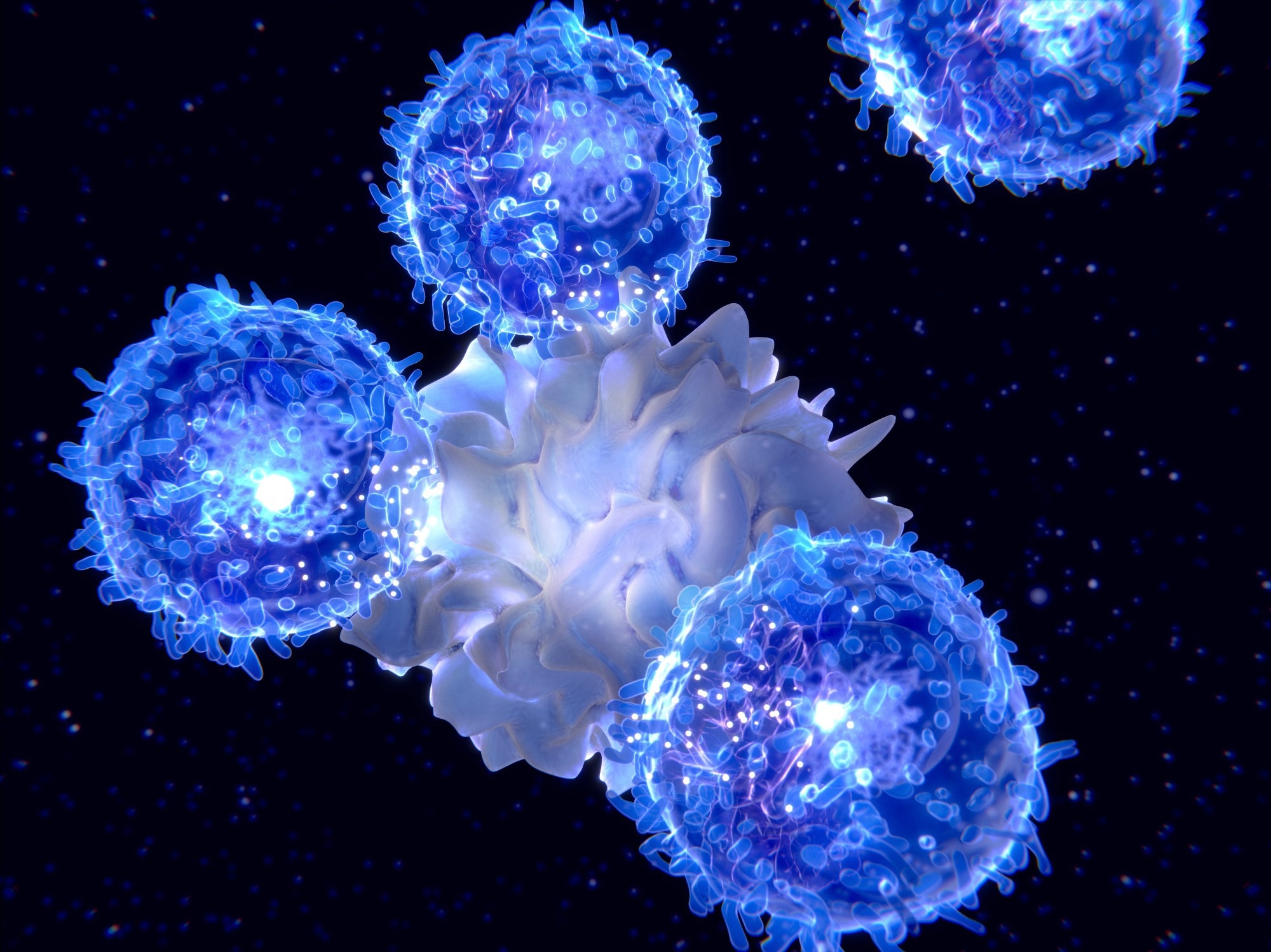In a recent study published in The Journal of Immunology, a team of researchers from Japan examined the memory B and T cell responses to severe acute respiratory syndrome coronavirus 2 (SARS-CoV-2) spike protein after the booster dose of the coronavirus disease 2019 (COVID-19) messenger ribonucleic acid (mRNA) vaccine BNT162b2. They also evaluated the memory B and T cell cross-reactivity to the Omicron variant.
 Study: Memory B Cells and Memory T Cells Induced by SARS-CoV-2 Booster Vaccination or Infection Show Different Dynamics and Responsiveness to the Omicron Variant Image Credit: Juan Gaertner / Shutterstock
Study: Memory B Cells and Memory T Cells Induced by SARS-CoV-2 Booster Vaccination or Infection Show Different Dynamics and Responsiveness to the Omicron Variant Image Credit: Juan Gaertner / Shutterstock
Background
The rapid development of various vaccines has successfully limited the severity of and mortalities due to COVID-19. However, with time, serum-neutralizing antibody titers from vaccinations and previous SARS-CoV-2 infections have decreased.
The emergence of SARS-CoV-2 variants carrying mutations in the spike protein that increase their transmissibility and immune evasion abilities has added to the concerns of waning immunity. The SARS-CoV-2 Omicron variants and sub-variants currently in circulation carry mutations in their spike proteins' receptor binding domain (RBD), allowing them to escape the neutralizing antibodies elicited from vaccinations.
While studies have shown that booster doses can grant continued protection against severe COVID-19, immune responses are varied across individuals. Furthermore, the persistence of memory B and T cell responses have not been comprehensively investigated.
About the study
The present study comprised 43 healthy individuals with no history of autoimmune, liver, kidney, or systemic diseases, cancers, or diabetes. The study also included 88 COVID-19 patients who were diagnosed with a positive reverse transcription polymerase chain reaction (RT-PCR) test. The healthy individuals were vaccinated with two primary doses of the BNT162b2 vaccine and a third (booster) dose eight months after the second dose.
Peripheral blood mononuclear cells (PBMCs) were isolated from the blood samples of all individuals. The complete spike protein and RBD were produced, and the purity and concentration of the proteins were analyzed using sodium dodecyl sulfate-polyacrylamide gel electrophoresis (SDS-PAGE) and protein assays.
The enzyme-linked immunospot (ELISpot) assay was used to detect memory B cells that secreted anti-RBD antibodies. The memory T cell response was measured using interferon-gamma (IFN-γ) ELISpot assay and fluorescence-activated cell sorting (FACS) to detect
activation-induced marker (AIM) presenting circulating follicular T helper cells after stimulating the PBMCs for one to two days with the SARS-CoV-2 spike protein.
Additionally, PBMCs were cultured with SARS-CoV-2 spike protein in the presence of interleukin-2 (IL-2) to produce anti-RBD antibodies in vitro, the concentration of which was measured using enzyme-linked immunosorbent assay (ELISA). Furthermore, the researchers also measured the cross-reactivity of the memory B and T cells against the SARS-CoV-2 Omicron variant using IFN-γ ELISpot assay and FACS.
Results
The results reported that while the neutralizing antibodies against the SARS-CoV-2 spike protein RBD decreased in the months following vaccination, the memory B cells increased and the memory T cell numbers gradually decreased. However, with the third dose of the vaccine, the memory B cell levels increased further, while the neutralizing antibody and memory T cell levels recovered to post-second vaccine dose levels.
In the test for cross-reactivity against the Omicron variant RBD, the memory T cells showed a similar response as that against the ancestral Wuhan strain, while the memory B cells displayed reduced avidity despite 60–80% binding to the Omicron RBD. However, the authors believe that the normal T cell response against the Omicron variant indicates that the affinity maturation induced against the Omicron spike protein will grant enough protection against infections with the Omicron variant.
When the immune responses elicited from SARS-CoV-2 infections were compared to those elicited from vaccinations, the results indicated that infections resulted in higher memory T cell levels but lower memory B cell levels. Contrary to other studies, the present study also found that patients exhibiting moderate disease symptoms elicited the most potent memory B and T cell responses.
The authors also speculated on possible reasons to explain the increasing memory B cell levels after vaccination with BNT162b2. They believe that the high levels of spike protein produced due to the mRNA vaccine induce the B cells to continue differentiating into plasma cells even three weeks after vaccination.
Conclusions
Overall, the results suggested that memory B and T cell responses induced by a booster dose of the mRNA vaccine were different from those induced by SARS-CoV-2 infection, with vaccinations eliciting a higher memory B cell response and a lower memory T cell response.
Furthermore, while memory B cells showed adequate binding affinity to the RBD of the SARS-CoV-2 Omicron variant, the avidity of the binding was low. However, memory T cells exhibited similar activity against the Omicron variant as against the Wuhan strain, ensuring protection against Omicron infections.
Journal reference:
- Mise-Omata, S., Ikeda, M., Takeshita, M., Uwamino, Y., Wakui, M., Arai, T., Yoshifuji, A., Murano, K., Siomi, H., Nakagawara, K., Ohyagi, M., Ando, M., Hasegawa, N., Saya, H., Murata, M., Fukunaga, K., Namkoong, H., Lu, X., Yamasaki, S., & Yoshimura, A. (2022). Memory b cells and memory t cells induced by SARS-CoV-2 booster vaccination or infection show different dynamics and responsiveness to the omicron variant. The Journal of Immunology, 209, 2104–2113. https://doi.org/10.4049/jimmunol.2200525, https://journals.aai.org/jimmunol/article/209/11/2104/237343/Memory-B-Cells-and-Memory-T-Cells-Induced-by-SARS